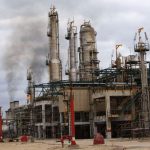Investments in Pakistan’s power-generation capacity under CPEC, has the potential to diversify the country’s energy mix.
ADB stressed on accelerating energy sector reforms to reduce and rationalize subsidies for oil-based generation.
The Asian Development Bank (ADB) has urged Pakistan to reduce subsidies for oil-based power generation, to tackle its growing imports that constrained the country’s Balance of Payments (BOP).
“The composition of imports contributes to the BOP constraint. Around 40 percent of electricity production in Pakistan is oil-based, and 25pc is gas-based. Direct and indirect subsidies for the energy sector are incentivizing oil consumption, thus driving imports,” stated ADB report titled Why Pakistan’s Economic Growth Continues to be Balance-Of-Payments Constrained.
The report said that the investments in Pakistan’s power-generation capacity, partly under the China–Pakistan Economic Corridor (CPEC), has the potential to diversify the energy mix, moving the country away from a dependence on oil-based energy supplies.
“This could lower dependence on energy imports, since domestic coal reserves would be used for power generation,” added the report.
The ADB stressed on accelerating energy sector reforms to reduce and rationalize subsidies for oil-based generation, incentivize renewable energy generation, and reduce losses are important structural reforms to alleviate the effects of energy imports on the BOP.
Talking about Pakistan’s remittance sector the report said that the high proportion of remittances coming from Middle Eastern oil-exporting countries, specifically from workers in the highly cyclical construction industry, results in remittance receipt fluctuations in relation to oil prices.
“On the upside, this provides a (delayed) hedge against fluctuations in the oil price, Pakistan’s main import. A more diversified distribution of migrant worker destination countries would help decouple remittances from oil price developments,” it said.





